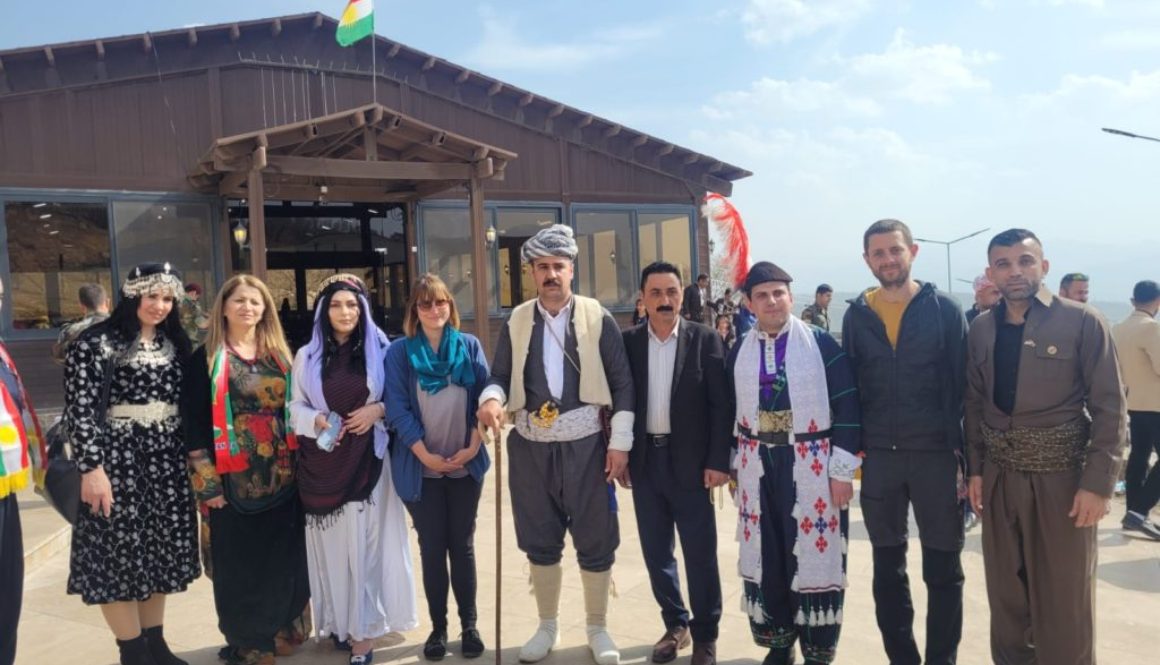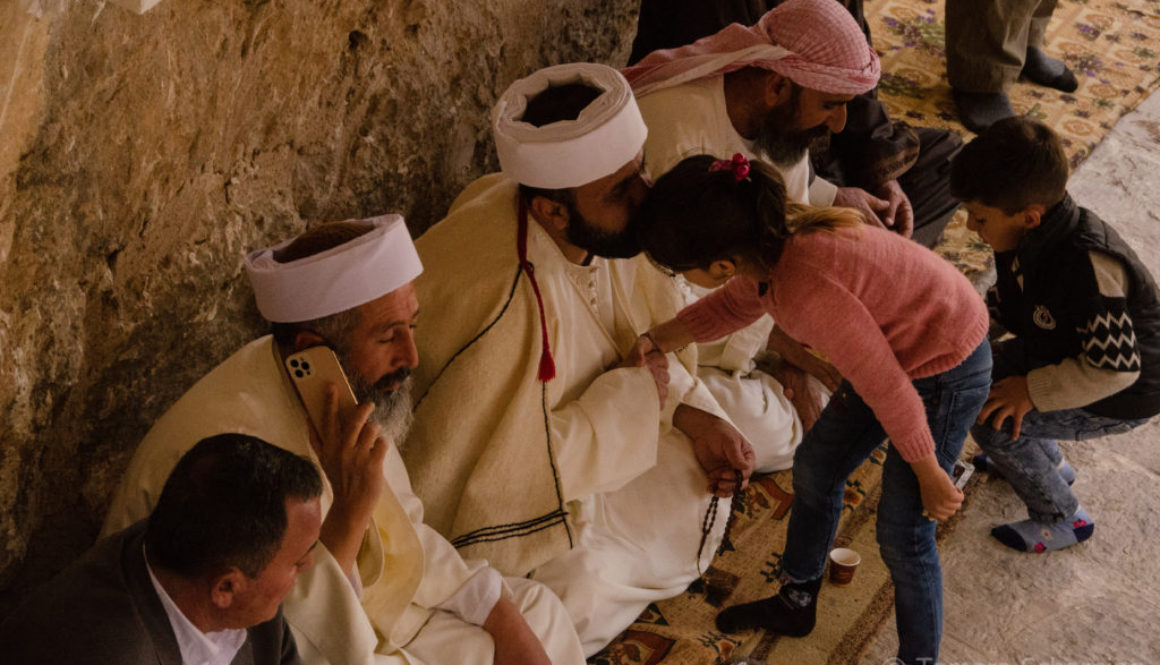Hitchhiking in kurdish hospitality
After a few days in Duhok, the third city of Iraqi Kurdistan, we start a journey in the mountainous regions of the East. As there is almost no public transport, we will have to hitchhike for some parts of the journey. A small glimpse of the Kurdish version of hospitality.
On Sunday morning we are in Amedi, a village perched in the mountains where we spent the night. Today we want to reach Soran, 140 km away. There are no buses or taxis, so we will hitchhike. The road passes through a succession of small towns and villages and we are warned that we will have to find several vehicles to reach our destination. We have therefore planned the whole day for the journey.
Having just left our hotel, a man in his seventies approaches us. He has been staying in the room next to ours. He lives in Bassra, in the far south of Iraq. He is a retired chemist who uses his free time to travel, both in Iraq and around the world. When we explain to him that we will be going to Basra in one or two weeks, he insists that we stay at his place. We exchange numbers and promise to keep in touch. The friend he is travelling with is from Soulé, the second largest city in Kurdistan. He too gives us his number. They offer us to accompany them to their next stop, but it is in the opposite direction to ours. We decline with regret and our paths separate here for the moment.
We wait for about ten minutes for our first car to stop. It will only be for a few hundred meters until the next crossroads, but it’s a start.
Another 10 minutes later, we get into our second vehicle of the day. The driver is going to Deraluk, about fifteen kilometres away. On the way, he stops to buy a drink and asks us if we want one. Naively, we answer “no thanks”, an expression of which the Kurds seem to be invariably ignorant. So our driver returns with three Red Bulls and we are off. He doesn’t speak English, so he calls his brother in the Netherlands, with whom we talk in Dutch and acts as a translator between us and the driver.
We are dropped off at the exit of the village where we immediately stick out our thumb. Our next car stops shortly afterwards. It is driven by a man in his seventies dressed in traditional Kurdish clothes. He does not speak English and communication is difficult. We explain to him that we want to go to Barzan, the next important town on our route. We can’t understand how far he is going but as he seems to be going in the right direction, we get on board. 20 km further on we have to stop at a checkpoint to have our passports checked. The officer speaks English and helps us to communicate with our driver. It turns out that he is about to take us to Barzan even though he has already passed his destination for several kilometres. We thank him and explain that we are looking for another vehicle to continue our journey. Our attempts to compensate him for the journey are not successful.
As soon as we leave the checkpoint, a rental car stops in front of us. On board, a young couple speaking perfect English offers to take us to Barzan. Their names are Zhirkar and Baran and we learn that they got married only 4 days ago. They are currently on their honeymoon through Kurdistan. We then notice the bridal bouquet under the back window. In Barzan, they accompany us to visit the memorial to Barzani, hero of the Kurdish movement in Iraq. It’s March 5, which turns out to be “Uprising Day”, celebrating the Kurdish rebellion against Saddam in 1991. For the occasion, the square is crowded with visitors, peshmergas and TV cameras. Before we know what’s happening, we are invited to pose for photos among personalities whose identity we still ignore. One of them is from Soulé. “When you go there, call me.” Numbers are exchanged. We finally manage to slip away and join Zhirko and Baran who are waiting for us and who probably had other plans for their honeymoon. They drop us a few kilometres further in the village of Bla. We exchange numbers again and promise to call them when we get to Soulé, but realize that this is already the third person in this town to whom we have made this promise.

We stop at a snack bar and order a tea, mainly to use the toilets. The friendly owner starts a conversation with his few words of English. As we were leaving, he refused to let us pay. We put 1000 dinars on the table and try to leave, but as we take our bag, he pushes the note into our pocket. We continue walking for a while before settling down on some steps to eat some of the bread we bought in the morning. We haven’t finished yet when the owner of another snack bar located 50 m further comes to offer us two cups of tea. We barely have time to thank him as he already turns around and goes back to work.


Tea down, we wait for our next car. This time it’s a white Nissan pick-up that stops, with two off-duty peshmergas inside. In the cabin, we swap the bridal bouquet for the machine gun. Communication is limited and the driver calls on WhattsApp his brother, who lives in Switzerland and speaks German. He takes care of the translation. The driver, named Sherldan, asks if we are hungry, in which case he offers to take us to lunch. We thank him but reply that we have just eaten. He believes us. Phew… Shortly afterwards he stops in front of a shop and asks if we want something to drink. “No thanks”. Learning from our mistakes, we follow him, firmly resolved to take the lead. But no sooner have we grabbed four cans from the fridge that Sherldan has already taken care of paying our purchases, adding two boxes of biscuits in the process. Missed. He firmly pushes away the note we try to address to the cashier. Kurdish friendliness has its own limits. On this pathetic failure, we return to the car. Back on the road, we offer our friends some biscuits that they have paid for. They share one for two with a “thank you”. Guess in Kurdistan you have to be satisfied with small victories…

We stop for a few pictures, as we almost forget the beauty of the mountainous landscapes that have accompanied us since the morning.
Around 5pm, we arrive in Soran where we will stay with Ali who we met on Couchsurfing. All in all, it took us nearly 6 hours and 5 different cars to make the trip for what, in the end, was just another day in Kurdish hospitality.























